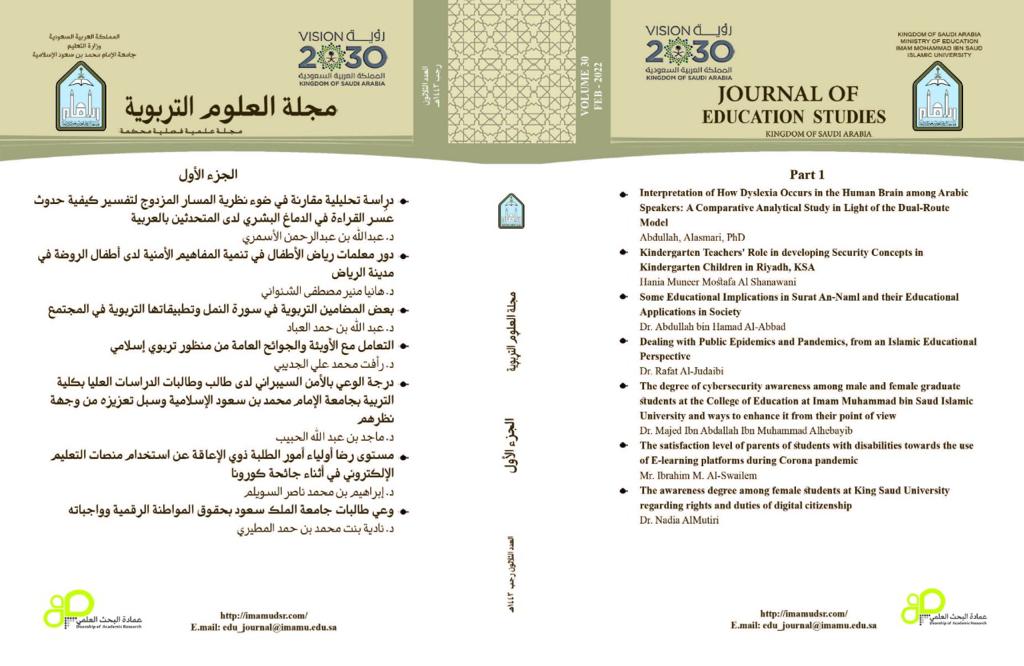Interpretation of How Dyslexia Occurs in the Human Brain among Arabic Speakers: A Comparative Analytical Study in Light of the Dual-Route Model
Keywords:
dyslexia, the Dual-Route Model, and cognitive deficitAbstract
This study aims to explain the cognitive deficit of mental processes in Arabic dyslexics through the Dual-Route Model, which is considered one of the most prominent theories explaining reading or naming pictures at human. This study was conducted on a sample consisting of two independent groups (dyslexic children and normal children), where each group had 18 participants after a scale was used to diagnose dyslexia. This was followed by a descriptive experiment conducted to measure reaction time for word reading. The study concluded that Arabic dyslexics were slower than Arabic normal readers at reading Arabic words and non-words and irregular words. In addition, there were indications of the distinction of the Arabic language when comparing reaction time for non-words with irregular words among Arabic normal readers. The study has contributed to proving the interpretation of the Dual-Route Theory of the reading process, as well as dyslexic cases of reading at the Arabic language. The study also recommended conducting further research using modern measurement methods in neuropsychology and cognitive psychology such as EEG & FMRI.




